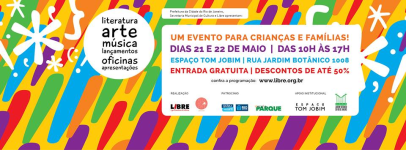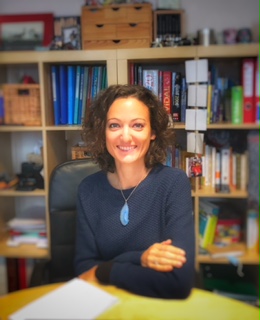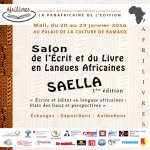From 2002 to 2009, Étienne GALLIAND (founder of the Alliance) managed the association. He then created Double Ponctuation, with which the Alliance regularly collaborates. Double Ponctuation is, among other things, copublisher of the Bibliodiversity journal.
Alexandre TIPHAGNE joined the Alliance from 2002 to 2007, as manager of co-editions and the Portuguese and Spanish languages networks. From December 2012 to April 2014, Alexandre was vice-chair of Cabinet in the Ministry of Culture and Communication and technical councillor responsible of the book, and later chair of Cabinet. Formerly a parliamentary collaborator of Aurélie Filippetti at the National Assembly, he is currently in charge of Culture at Paris City Council.
Thomas WEISS worked for the Alliance between 2003 and 2006 as a logistician, administrator and Webmaster. He also coordinated co-publishing projects of the English and Arabic languages networks. In 2007, he became an independent consultant and web developer, and worked principally for the Charles Léopold Mayer Foundation, Exemole Sarl, and the Research Institute, and contributed to discussions on governance. In 2013, he joined the French IT group, Netapsys Conseil, as central director. He is currently a consultant at OCTO Technology.
Between 2008 and 2010, Nathalie CARRÉ contributed her expertise to “Terres solidaires” and “Terres d’écritures”, both solidary copublishings collections. Nathalie continued facilitating the reading committee of the “Terres solidaires” collection. She is currently a Swahili teacher at Inalco.
Sonbol REGNAULT-BAHMANYAR contributed to the Alliance between 2010 to 2012, by developing the Persian language publishers group. Sonbol is currently in Iran, where she runs a French pastry shop.
Matthieu JOULIN joined the Alliance’s team in 2011, after a master’s degree in Hispano-American Language, Literature and Civilisation at Bordeaux University and a master’s degree in Book Commercialisation at University of Paris 13-Villetaneuse. Between 2011 and 2019, Matthieu was especially in charge of the Digital Lab of the Alliance; and maintaining and supporting the Spanish and Portuguese language networks.
Clémence HEDDE worked for 10 years at the Alliance, between 2010 and 2020. After a double degree in Geography/ Book Trade in France and the United Kingdom, and experiences in different publishing houses (Autrement, La Découverte, Phaidon), Clémence Hedde was Programme Manager at the International Alliance of independent publishers, more specifically responsible for overseeing the Alliance’s French-language network and the children’s books/youth literature thematic group, coordinating international co-publishings, organisation of meetings and workshops, as well as monitoring the research initiatives of the Bibliodiversity Observatory. She is now Literary Coordinator at Ciclic, the regional Agency of the Center Val de Loire for books, images and digital culture.
Mariam PELLICER is a graduate from Sciences Politiques in Toulouse (specialising on the fight against discrimination and the struggle for equality), after an academic exchange at the University in Chile, stuying among other things, sociology of gender. Mariam’s early professional experiences were with the International Alliance of Women in Athens and then with the Fondation des Femmes in Paris.
Between 2020 and 2024, Mariam coordinated the Spanish- and Portuguese-speaking networks, the Bibliodiversity Observatory and the Alliance’s advocacy unit.


























